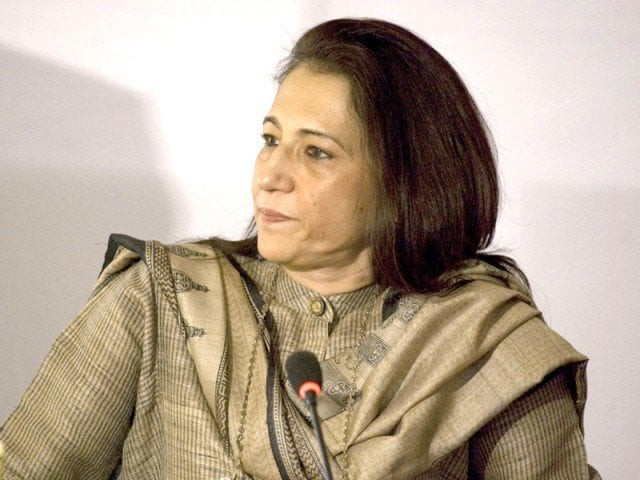A sense of belonging: For Ayesha Jalal, Islam is an ocean
The historian looks at Islamic universalism in the age of steam and print

The historian looks at Islamic universalism in the age of steam and print. PHOTO: AYESHA MIR/EXPRESS/FILE
She was speaking during a lecture, titled 'Islam is the Ocean - Muslims and Globalisation in the Modern Age', at the Aga Khan University auditorium on Friday. Tracing the oceanic travels of religion in "the age of steam and print" - from the 1850s to the 1930s - she discussed Islamic universalism along the Indian Ocean Rim.
"Islam did not just travel by caravans, it travelled also by sea, through boats and ships," explained Jalal. "It did not arrive fully formed in the South Asian subcontinent."
According to her, Muslim imaginings were animated by a sense of belonging to a global community of believers - the ummah. "Indian Muslims and their sense of disempowerment in the face of Western colonialism led to greater empathy with co-religionists in other parts of the Islamic world." This affinity, she asserted, did more than merely fulfil a religious ideal. It was also seen as a political necessity by India's 'pan-Islamists', who sought inspiration from the Muslim world and adjusted to their loss of sovereignty by taking a heightened interest in Ottoman Turkey.
For Jalal, understanding the strands of Islamic universalism emanating from this region at this juncture of history was of vital importance. "This period of decolonisation saw the emergence of the modern nation-state, accounting for many of the dilemmas, distortions and disenchantments present here today."
Exploring how travel created ties between the subcontinent and the Indian Ocean, the historian talked about the musings of Sir Syed Ahmed Khan, Shibli Nomani, Munshi Mehboob Alam, Ghulam Rasool Mehr, Muhammad Ali Johar and Allama Iqbal as they travelled through South Asia and onward to cities such as Istanbul, Aden and Alexandria. "Which miserable creature from Lahore would like to come to dust-filled Karachi?" she quoted Mehr, eliciting laughter from the audience.
These travellers found many manifestations of their homeland during their journeys in the Muslim world, from lassi to Urdu - something that made for an endearing familiarity, in Jalal's words.
"Was the ummah a mere figment of Indian Muslim imaginings and a salve for the pain of Western colonialism, or could it be that Islamic universalism was a form of intimacy connecting individuals across the Indian Ocean?" she questioned. Certainly, she thought, it generated exchanges that had an immense impact on the ideas and politics of Indian Muslims at the time, manifested in efforts such as the Khilafat Movement and the Pakistan Movement.
Partition, however, slowed down this process. "The division of land and water destroyed the organic river networks that connected the Punjab and Bengal to the Indian Ocean," stated Jalal as she concluded her lecture. "There is little doubt that the subcontinent continues to pay a hefty price for this 'crime against humanity' - and nature."
Published in The Express Tribune, March 28th, 2015.



















COMMENTS
Comments are moderated and generally will be posted if they are on-topic and not abusive.
For more information, please see our Comments FAQ